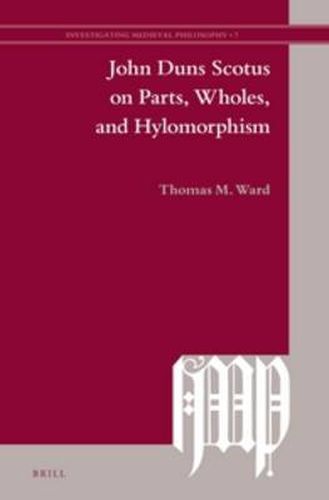Readings Newsletter
Become a Readings Member to make your shopping experience even easier.
Sign in or sign up for free!
You’re not far away from qualifying for FREE standard shipping within Australia
You’ve qualified for FREE standard shipping within Australia
The cart is loading…






In John Duns Scotus on Parts, Wholes, and Hylomorphism, Thomas M. Ward examines Scotus’s arguments for his distinctive version of hylomorphism, the view that at least some material objects are composites of matter and form. It considers Scotus’s reasons for adopting hylomorphism, and his accounts of how matter and form compose a substance, how extended parts, such as the organs of an organism, compose a substance, and how other sorts of things, such as the four chemical elements (earth, air, fire, and water) and all the things in the world, fail to compose a substance. It highlights the extent to which Scotus draws on his metaphysics of essential order to explain why some things can compose substance and why others cannot. Throughout the book, contemporary versions of hylomorphism are discussed in ways that both illumine Scotus’s own views and suggest ways to advance contemporary debates.
$9.00 standard shipping within Australia
FREE standard shipping within Australia for orders over $100.00
Express & International shipping calculated at checkout
In John Duns Scotus on Parts, Wholes, and Hylomorphism, Thomas M. Ward examines Scotus’s arguments for his distinctive version of hylomorphism, the view that at least some material objects are composites of matter and form. It considers Scotus’s reasons for adopting hylomorphism, and his accounts of how matter and form compose a substance, how extended parts, such as the organs of an organism, compose a substance, and how other sorts of things, such as the four chemical elements (earth, air, fire, and water) and all the things in the world, fail to compose a substance. It highlights the extent to which Scotus draws on his metaphysics of essential order to explain why some things can compose substance and why others cannot. Throughout the book, contemporary versions of hylomorphism are discussed in ways that both illumine Scotus’s own views and suggest ways to advance contemporary debates.